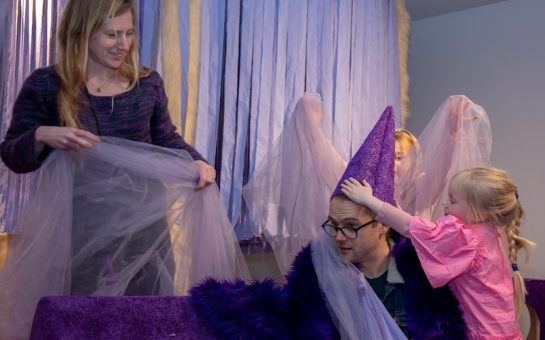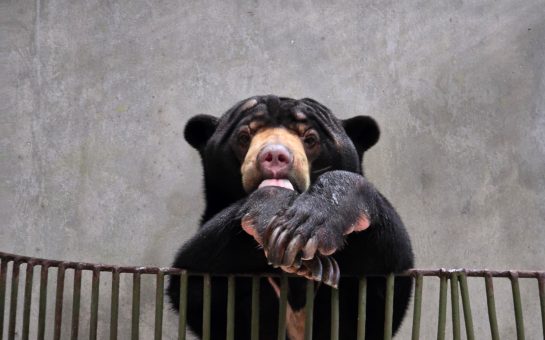Kingston School of Art students won prestigious awards at the world’s largest showcase of rising stars in BA fashion from the UK and abroad.
Fashion students Darcie Hancock, Joy Julius and Mimi Simpson were highly esteemed prize-winners at this year’s Graduate Fashion Week Awards, the annual event which hosts catwalk shows, university exhibitions, talks and masterclasses from leading names in the fashion and retail industry.
All three collections shed light on pressing contemporary social, political and/or environmental issues and challenged expectations in innovative ways.
The result was a strong sense of purpose and intention behind the collections that reflected the individual values and beliefs of each designer.
SWL got the chance to speak to Darcie, Joy and Mimi about their collections and learn a bit more about the creative process behind their designs.
Darcie Hancock
Darcie was second prize winner for the prestigious Christopher Bailey Award and said her collection, ‘Life’s a Joke’, sought to mock the prevalence of surveillance technology in society today and protest the extent to which individuals are tracked and monitored in daily life.
Darcie said: “There’s a lot of things going on with restrictions on protests and it feels like freedom of speech is on the cusp.
“It is important that we take a stand against that, be able to move and speak freely and at least know when surveillance is there.
“I think a lot of people don’t realize how common it is so it’s crucial that it is noted.
“When protests do happen there are cameras there that aren’t marked up. These are things we should look at and not just ignore.”
Darcie explained that the idea behind her anti-surveillance collection sparked when airport security cameras were unable to recognise her face due to the clown inspired makeup she was wearing.
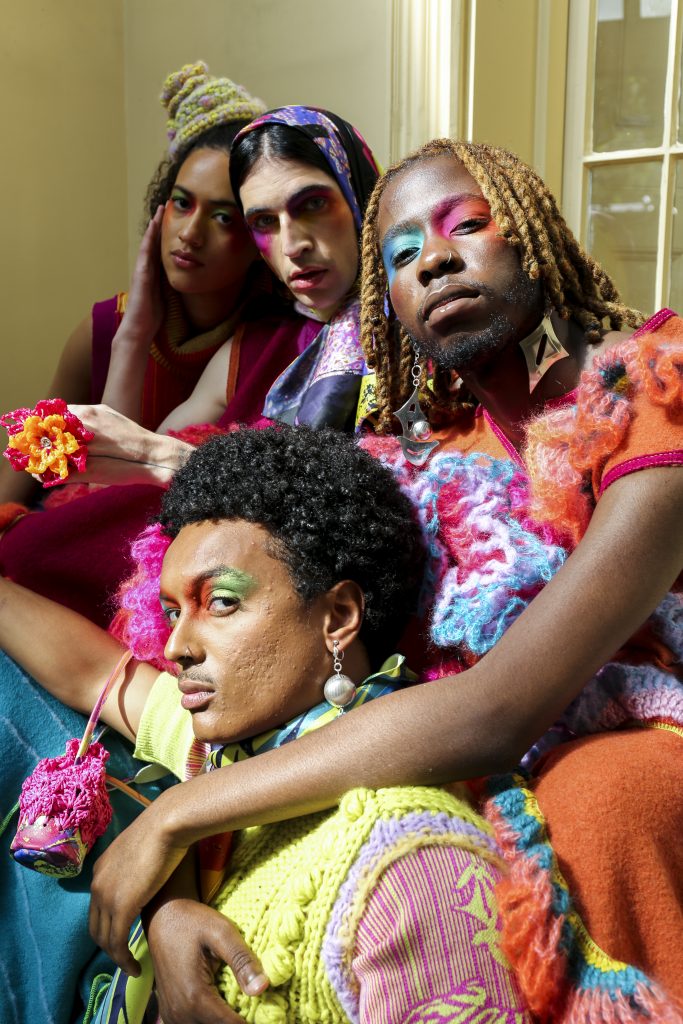
She said: “I have always been fascinated by clowns and how they distort their bodies and face for humour, and these personal experiences led me down this anti-surveillance theme.
“The collection is all in the direction of distorting and the garments are all pattern cut so they create all these weird shapes and bulges that don’t flow with the natural shape of the body.
“I also had the head scarves and the balaclavas to hide bits of the face so it’s all about distorting and bringing it through that way.
“It’s also making a joke out of the situation.
“Everything in the world is a bit dark and depressing quite regularly and I wanted to do something that really goes against that.”
Darcie’s collection was made from all-natural biodegradable materials such as wool, raffia, leather and silk but she said sustainability was less a theme in her collection and more an embedded part of her design work, an ethical practice that she believes all designers should follow.
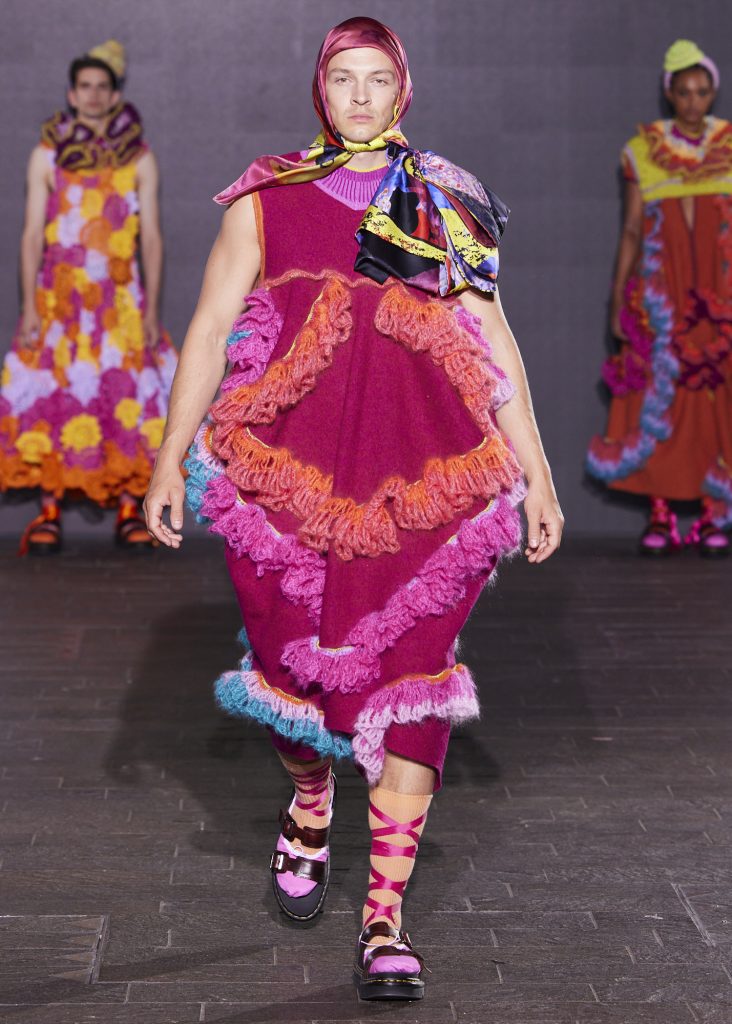
The 23-year-old made the decision to choose members of the LGBTQ+ community to model her collection.
She said: “As a queer woman, I wanted to make clothes that embraced the community and made them feel great.
“With Pride marches and protests not happening because of Covid I think we need to remember and keep in the public eye that the community is allowed to be here.
“There’s been lots of violence at the minute in Liverpool against trans women and gay people so it’s important that the community is always a part of my work.
“I always make my collections gender neutral and I just think it’s important that I don’t ignore that side of me.”
Joy Julius
Joy made history by being the first winner of the Black Excellence Prize, a new award set up to spotlight Black graduate talent.
A Nigerian-Swiss National, her non-gendered collection has personal roots designed in response to the End SARS movement, a series of protests that took place in Nigeria last year calling for an end to police brutality by Nigeria’s Special Anti-Robbery Squad.
The six looks blended traditional men’s attire with military detailing using Nigerian menswear robes, called Agbada, as a foundation for the collection.
Joy said: “I was frustrated by what was going on and I came across this picture of a lady who was at the forefront of the protests.
“I illustrated her and while I was doing that it dawned on me that I could use this silhouette and empower it with military details to match the police who were on the opposite side and give the protestors as much power and protection as them.”
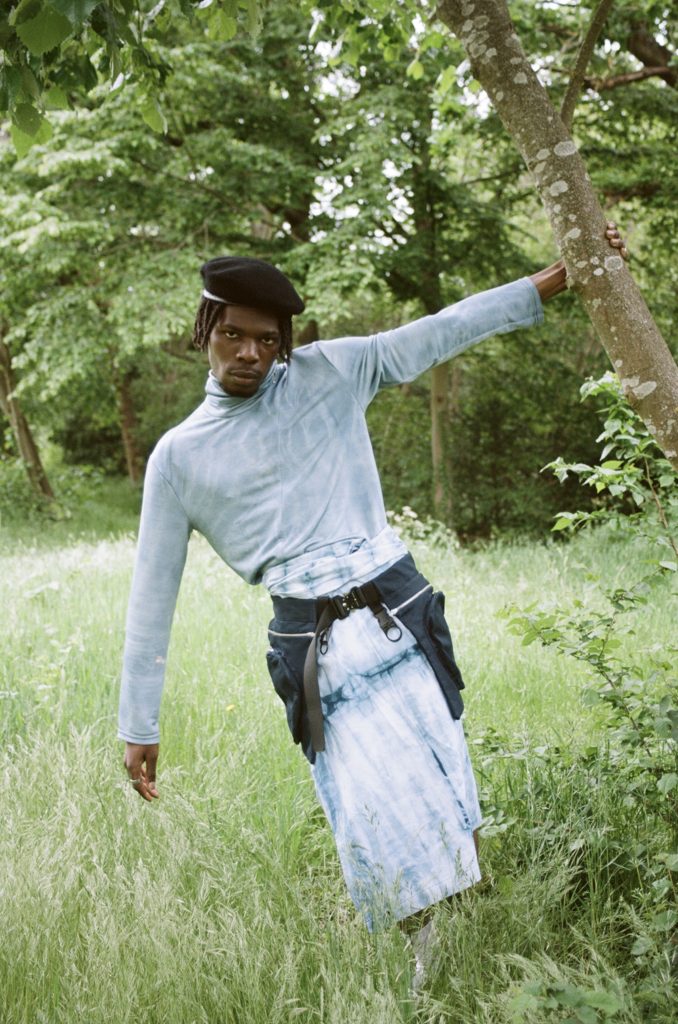
Protest was a central element to Joy’s collection, but she stressed she wanted to inspire peaceful protest and prioritise raising awareness.
She added: “With time I realised I did not want to be too violent with my approach. I wanted it to be a peaceful protest and showcase emotion.
“I wanted to respond by not gearing my silhouette up with metal and harsh details but with more soft colours and texture.”
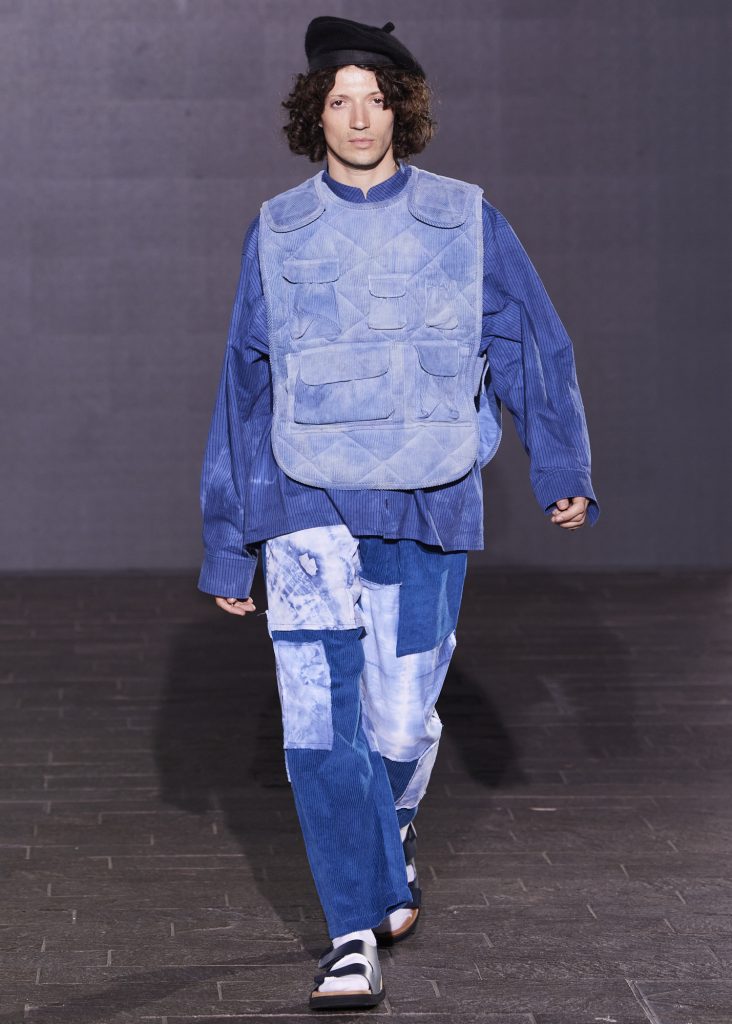
Moving forward, Joy aspires to build her own fashion brand with her friend, a fellow graduate from Kingston University.
She said: “We’re two Black women from two separate sides of Africa. I’m from West she’s from East, she’s Muslim I’m not. We grew up in different parts of Europe and we have so much to tell.
“It is difficult out there for Black women, but people are merging, and it is my dream to inspire, create conversations and explore my roots, experiences and DNA and find more people who can relate.
“It’s a whole world I want to explore.”
Mimi Simpson
Mimi won the Considered Fashion Award with a high-end collection that focused on sustainability and gender fluidity.
The garments were fashioned from repurposed clothing and upholstery sourced from charity shop waste products and the wider Kingston community.
Mimi said: “I always knew I wanted to do something sustainable and ethical, but I feel like there’s so many different paths you can go down.
“I wanted to do something that was not just going to be beneficial to myself, I wanted it to be able to help other people.
“I started volunteering at this charity shop in Teddington and they had so many waste products that they couldn’t use.
“It meant I didn’t have to buy second hand and take products away from people who need them or just want to buy sustainable clothing, so it was great that I could use sustainable products that otherwise would have been thrown away.”
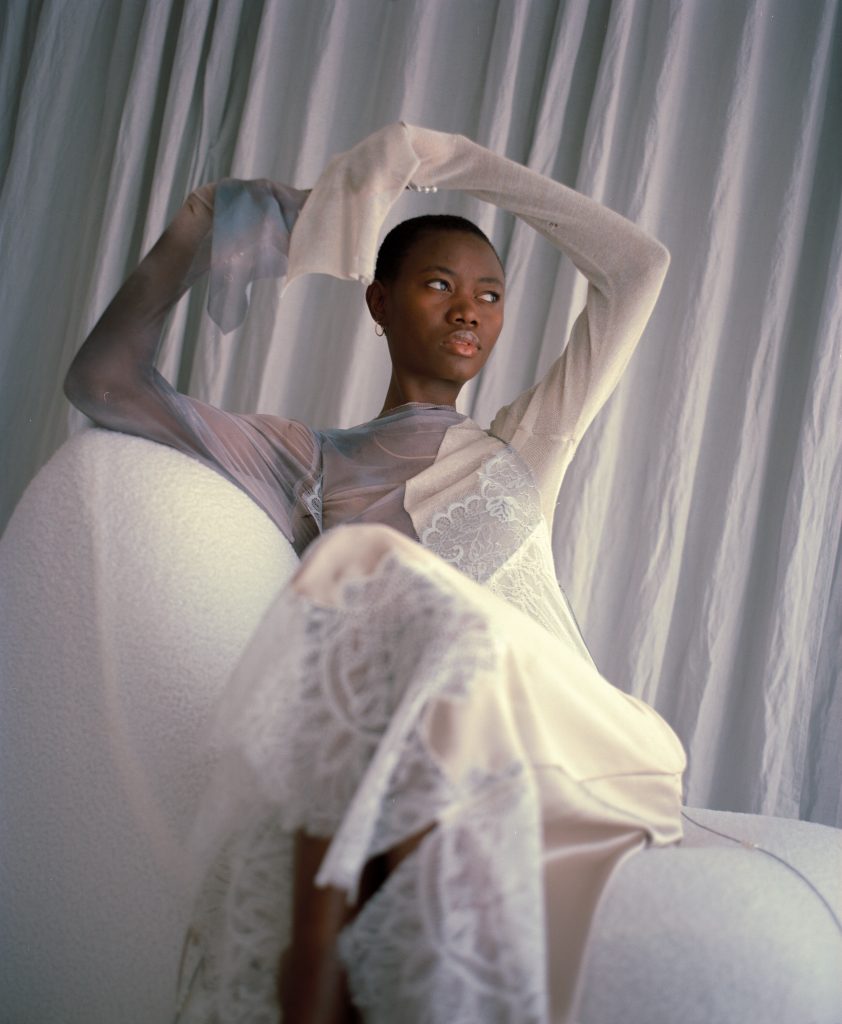
The 22-year-old expressed awareness about the high costs often involved in sustainable fashion design but believes it is vital all brands integrate sustainability into their practices and people understand that waste products can be transformed into sophisticated products beyond casual wear.
She drew inspiration from the interior fabrics of everyday life during lockdown and aimed to challenge expectations by repurposing them in a high-end context.
Mimi added: “My favourite fabric I used came from these two armchairs that my friend and I both used in our projects.
“We took the fabric off these chairs that had been kind of upholstered already and I used mine on the front of a sleeveless jacket and shoes.
“It ended up not being how I imagined but I liked the surprise.”
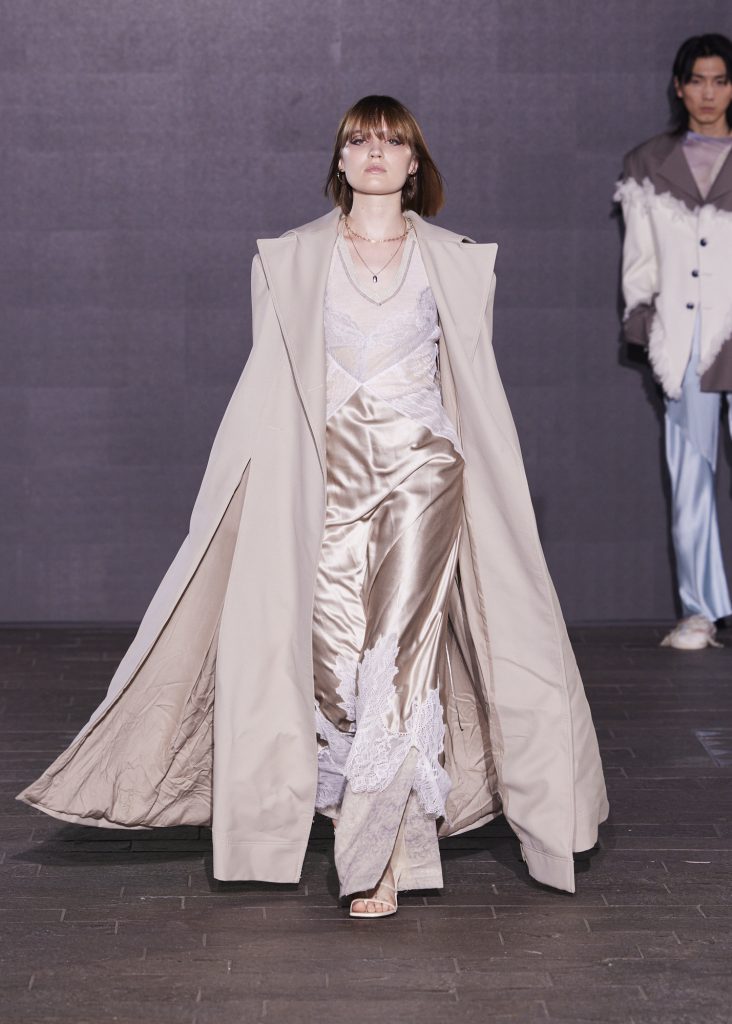
Mimi decided to make her collection non-gendered and hopes this will become increasingly normalised within the industry.
She said: “No matter what I base my collection on this is an aspect I want to include.
“I really like the idea of borrowing each other’s clothes, my friends and I are always borrowing each other’s clothes and it doesn’t matter if its supposed to be men’s or women’s, it’s just down to the individual and what they like to wear themselves.
“I had a lot of curved seams and I tried to do it on a place on the body where it would look good on a male, female or non-binary body.”
Featured image credit: Graduate Fashion Foundation

